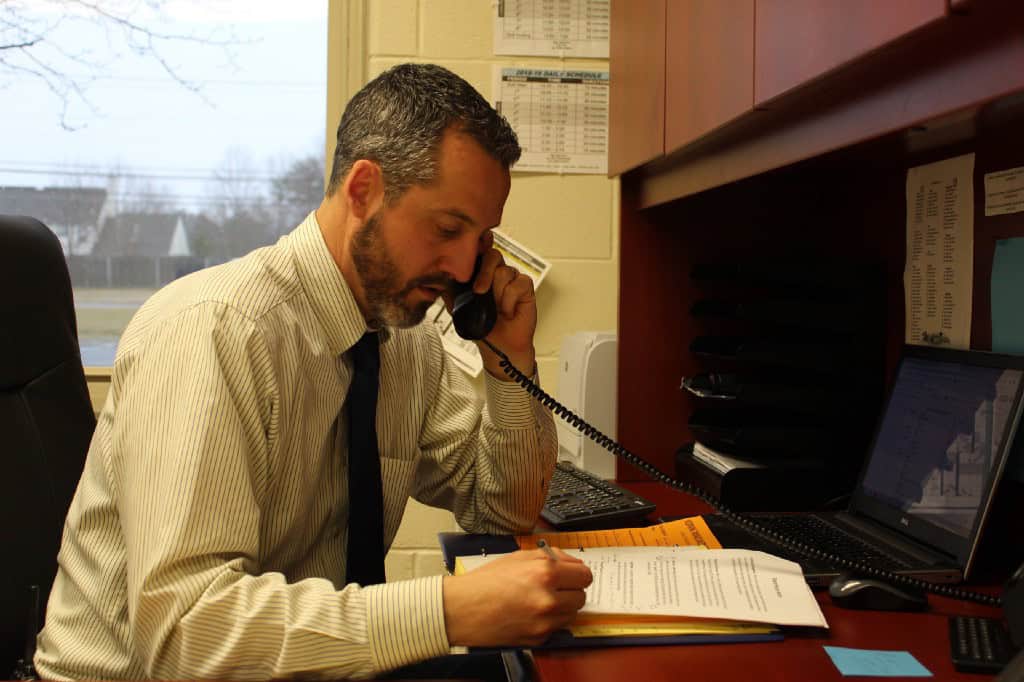
The people are also tied into the district’s character education program.

By KRYSTAL NURSE
The Sun
Every morning at J. Mason Tomlin Elementary School, fourth, fifth and sixth graders are treated to morning announcements that include a round-up of the day’s activities and reminders. In February, that’s changed a bit.
For roughly five minutes every morning in February, JMT Principal Robert Miles reads aloud the names and information about African-American figures, and Nelson Mandela, who’ve made an impact during slavery, the Civil Rights Era and today.
Most of the people he chooses are unknown to the children.
“We’re just trying to find people who they’ve never heard of, and they’re seeing how they sacrificed and served other people,” said Miles. He also related to the social media culture that exists today where kids may or may not know what a celebrity or popular person does in their spare time to help others.
“I think of the people who’ve made the most impact, but it’s also not someone like Lebron James, who I like, being a basketball fan,” he said. “It’s someone who has made an impact not by being a celebrity, which isn’t wrong, but someone who has made an impact through sacrifice.“
Miles will also tie those figures into the district’s emphasis on character education and promoting the 10 core virtues — wisdom, integrity, self-control, fairness, courage, positive attitude, respect, humility, friendship and service. February’s virtue is positive attitude, and Miles said he highlights important acts each person has done for the greater good of humanity in both the country and the world.
On Feb. 8, his figure of choice was Thurgood Marshall, who served on the U.S. Supreme Court for 24 years, and was the court’s first African-American justice, among holding other positions, such as legal counsel for the NAACP and arguing the famous Brown v. Board of Education of Topeka, Kan., case, through which he was given the moniker Mr. Civil Rights.
Miles tied Marshall’s legacy back to a concept easier for students to understand by asking for them to think of who has helped them get to where they are today.
The idea of featuring prominent figures in African-American history during February came up shortly after he became principal at the elementary school to “get students to think beyond their four walls and see the world bigger than what they know.” He also continues this in March for Women’s History Month.
As the students, teachers and parents have commended him for doing this, he said he has learned not only about the people featured, but also the hardships the African-Americans had to go through.
“We can look back and think that it might not have been a big deal to them, but, for example, Rosa Parks, she got arrested for sitting on the bus,” he said. “These were real sacrifices. It’s not a small thing to escape to freedom after being enslaved for 39 years, then you go back and you could get caught again and get put back in the same predicament.”
Despite racism still present to this day, Miles remarked how the point of this is to show the students they’re all recipients, regardless of race or ethnicity, of sacrifices made by African-Americans during that time who’ve helped make the world a better place.









